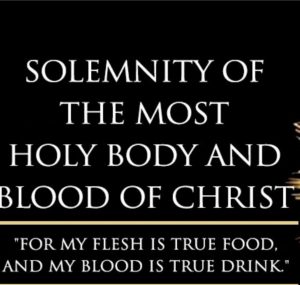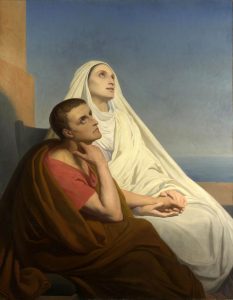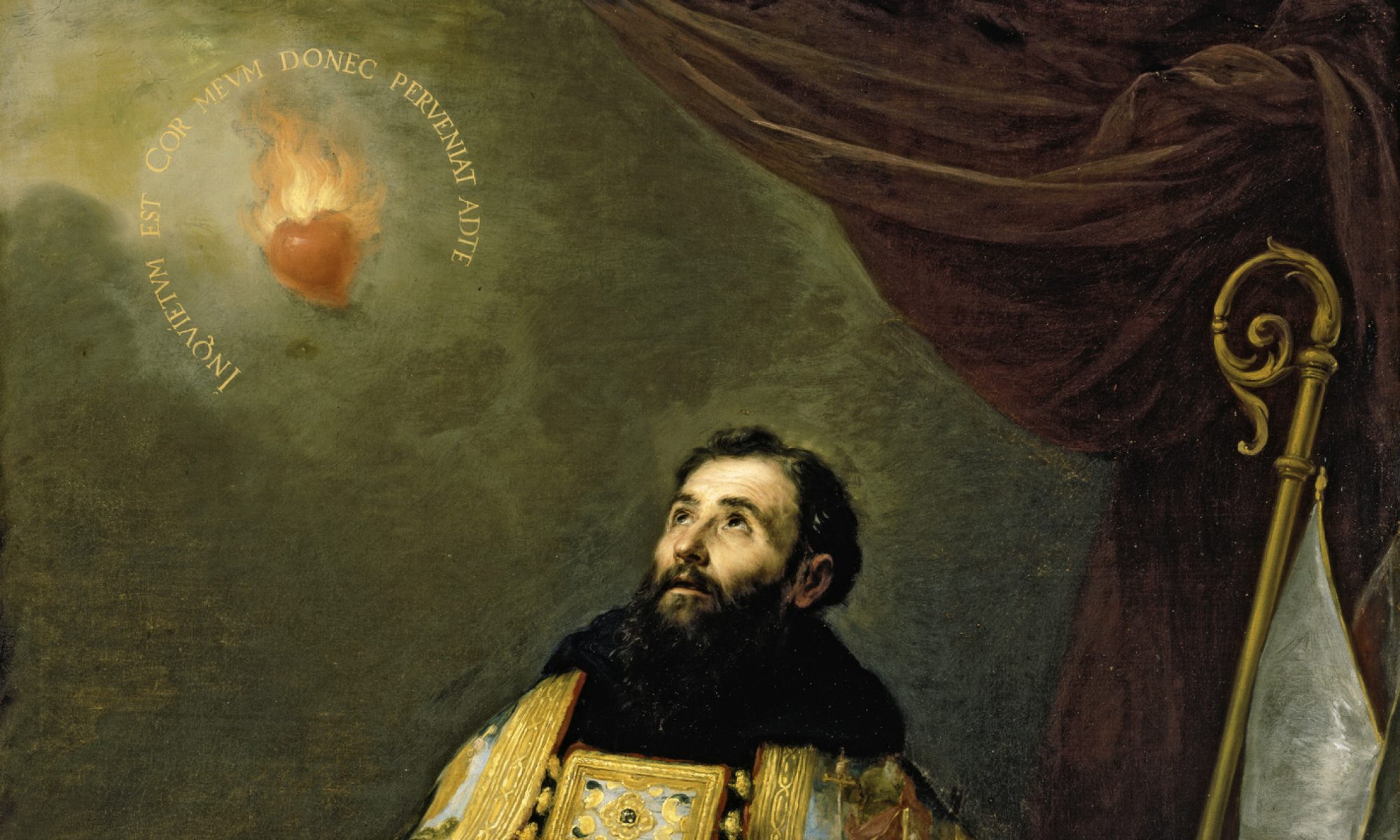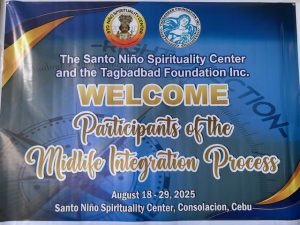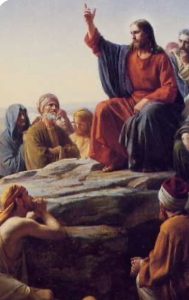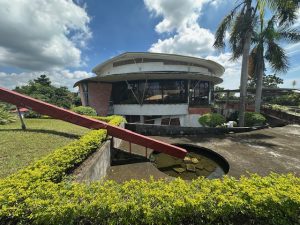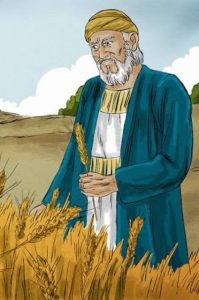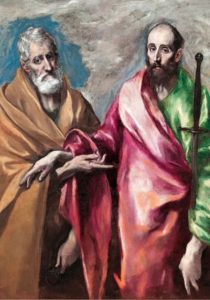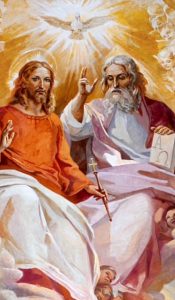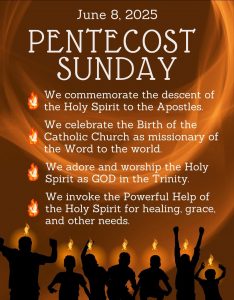Having been a Catholic parishioner for many years, he still struggles to accept Jesus and does not fully understand that Christ is truly present in the Eucharist. Many of you may have the same attitude, wrestling to fully accept this mystery in faith. We just cannot seem to figure out how Jesus’ Body and Blood could truly be present in that way.
So, I politely asked this person, “Would you like it if Jesus really wanted to be with you and dwell within you through the Eucharist?” He responded, “Yes, but I would prefer it if there were concrete and visible evidence—something I could see and taste—to truly believe.” He refused the simplicity of faith and receptivity.
Many of us also look for evidence to prove Christ’s Real Presence in the small host and the chalice of wine—elements that never change in taste. Yet Jesus said plainly: “This is my Body… This is my Blood”—real food and drink for eternal life. Jesus does not lie. He would never deceive us.
What becomes painfully evident, however, is our lack of belief and reverence toward the Eucharist. Many times, we fail to give the highest respect to God, who became food—not just to nourish us physically or spiritually, but to show us how deeply we are loved. Let us ask ourselves again:
- How much honor and respect do we give to Jesus in the Eucharist?
- How many of us fail to recognize His presence after receiving Communion?
- How often do we offend the Lord by acts of irreverence or sacrilege?
At every Mass, we are called to believe that after the consecration of the bread and wine, something extraordinary takes place—not just a priestly blessing, but a real transformation: both species become the Body and Blood of Jesus Christ. This mystery is what we call the Eucharistic Presence of God. The feast of Corpus Christi has been celebrated in the Church since 1254 to honor this profound mystery.
Today is a special day for the Church to humbly reflect on the sacred meaning of the Eucharist through the Scriptures. This feast began on Holy Thursday, when at the Last Supper, Jesus gave His Body and Blood to His disciples. That gift was completed on Good Friday, when He offered His Body and Blood on the Cross for all of us.
In the first reading from the Book of Genesis, we see a victorious moment: Melchizedek, priest of God Most High, offers bread and wine in thanksgiving and blessing. The ritual act of praise, along with the offering of bread and wine—gifts from the earth and signs of God’s sustaining love—symbolize a deep covenantal relationship with God.
In the second reading, from the First Letter to the Corinthians, St. Paul recalls the institution of the Eucharist at the Last Supper. Paul writes that Jesus took bread, gave thanks, broke it, and said, “This is my Body that is for you. Do this in remembrance of me.” Then He took the cup and said, “This cup is the new covenant in my Blood. Do this, as often as you drink it, in remembrance of me.” Paul reminds us that in eating this bread and drinking this cup, we proclaim the death of the Lord until He comes again.
The Gospel from Luke recounts the miracle of the multiplication of loaves and fish. Jesus’ preaching and healing had drawn a large crowd. Though physically exhausted and hungry, the people stayed, captivated by His words.
Let us reflect on three key moments:
First, Jesus sends out His apostles, and when they return to report all they had done and seen, He takes them to a quiet place for rest. But the crowd finds them again, and the tension over how to feed such a large group arises. Their inability to provide food becomes a moment of mission, not failure.
Second, Jesus tells the apostles, “You give them something to eat.” They protest that they have only five loaves and two fish. But Jesus blesses what they have and gives it back to the apostles to distribute. This act mirrors the Eucharist: blessing, breaking, and distributing. When the people had eaten their fill, twelve baskets of leftovers remained—an abundant sign of God’s providence.
Third, Jesus shows that His preaching and healing are intimately tied to the act of feeding. He empowers His apostles to serve, just as He serves. Jesus, the one who should be served, instead becomes the one who serves. The apostles, then and now, are to break bread for the healing and nourishment of the faithful. Those wishing to be fed had to gather, sit, and show they were open to receive.
The apostles went out with little, and returned with much. Jesus transforms what is small through the power lines of love.
When you are hungry, do not turn to food that fails to satisfy. Turn to Jesus. In your most difficult moments, when you feel overwhelmed, let the gift of His life give you strength, freedom, and courage. Jesus offers you peace that the world cannot give. He offers you the food that leads to eternal life. With this food, you will not lose yourself—you will find yourself, and be united with God.
In Sermon 227, St. Augustine teaches that the visible bread and wine on the altar, once sanctified by the word of God, become the Body and Blood of Christ. In receiving the Body and Blood of Christ, we become what we receive: the Mystical Body of Christ. Augustine affirmed that what we receive is the same Body that hung on the Cross. It is not merely a symbol—it is a real participation in Christ’s sacrifice.
St. Augustine gives us this powerful insight to contemplate on this Solemnity of the Most Holy Body and Blood of Christ.
God bless you.
Fr. Arlon, osa
——————————
El Dictado del Corazón
Solemnidad del Santísimo Cuerpo y Sangre de Cristo (Corpus Christi), Año C
- Génesis 14, 18–20
- Salmo 109, 1–4
- 1 Corintios 11, 23–26
- Lucas 9, 11–17
Aun después de muchos años en la Iglesia, hay quienes siguen luchando por creer que Jesús está realmente presente en la Eucaristía. Tal vez tú también batalles con este misterio de fe. Quizás te preguntes: ¿Cómo puede ser posible? ¿Cómo pueden el pan y el vino convertirse en el Cuerpo y la Sangre de Cristo?
Una vez le pregunté amablemente a un feligrés que tenía esta misma duda:
”¿Te gustaría que fuera verdad que Jesús quiere habitar en ti a través de la Eucaristía?”
Él respondió: “Sí, me gustaría, pero desearía tener pruebas visibles, algo que pudiera ver o saborear para realmente creer.”
Esta respuesta, aunque honesta, revela una negativa a aceptar la sencillez de la fe. Como muchos hoy en día, buscaba evidencia tangible en lugar de abandonarse al don del misterio divino. Pero la fe no consiste en ver, sino en confiar en Aquel que habla.
Jesús no dijo: “Esto representa mi Cuerpo”, sino: “Esto es mi Cuerpo… Esta es mi Sangre.” Él no nos engaña. Nos entregó su propio ser: alimento verdadero y bebida verdadera para la vida eterna.
Lo que con frecuencia se vuelve dolorosamente evidente no es el misterio de la Eucaristía, sino nuestra falta de fe en ella. Muchos de nosotros, tal vez sin darnos cuenta, recibimos la Eucaristía sin reverencia, sin asombro, sin amor.
Preguntémonos sinceramente:
• ¿Cuánto honor y devoción mostramos a Jesús verdaderamente presente en la Eucaristía?
• Después de comulgar, ¿reconocemos a quién hemos recibido?
• ¿Con qué frecuencia ofendemos al Señor por actos de irreverencia, distracción o incluso sacrilegio?
En cada Misa ocurre algo extraordinario: no es solo un rito simbólico, ni una simple bendición, sino una verdadera transformación. El pan y el vino se convierten en el Cuerpo y la Sangre de Jesucristo. A esto le llamamos la Presencia Real, no una metáfora, sino una realidad.
La Solemnidad de Corpus Christi, celebrada por primera vez en la Iglesia en 1254, es un día para honrar y reflexionar profundamente sobre este misterio sagrado. Nace del Jueves Santo, cuando Cristo instituyó la Eucaristía, y nos dirige al Viernes Santo, cuando se ofreció por completo en la Cruz.
En nuestra primera lectura del Génesis, encontramos a Melquisedec, el misterioso sacerdote rey de Salem, ofreciendo pan y vino en acción de gracias. Este acto antiguo prefigura a Cristo, el verdadero Sacerdote y Rey, que se ofrece bajo los signos del pan y el vino: un gesto de alianza, de gratitud y de amor.
En la segunda lectura, San Pablo recuerda la Última Cena. Jesús tomó el pan, dio gracias, lo partió y dijo: “Esto es mi Cuerpo, que se entrega por ustedes.” Luego tomó el cáliz y dijo: “Este cáliz es la nueva alianza en mi Sangre.” No es solo un recuerdo: es una participación en el sacrificio de la Cruz.
En el Evangelio de Lucas, vemos a Jesús alimentando a una multitud hambrienta con cinco panes y dos pescados. Pero este milagro es mucho más que una comida. Es un anuncio de la Eucaristía.
Reflexionemos sobre tres momentos importantes de esa escena:
1. Jesús se retira con sus discípulos a descansar, pero la multitud los encuentra. En lugar de alejarlos, Jesús los acoge, los sana y les enseña. Aun cuando estamos cansados y agobiados, el Señor sigue entregándose a nosotros.
2. Jesús les dice a sus apóstoles: “Denles ustedes de comer.”Aunque tienen poco, Él bendice lo que le ofrecen y lo multiplica. Esto es Eucaristía: bendecir, partir y compartir. Cuando ofrecemos nuestros pequeños dones a Dios, Él los transforma sin medida.
3. Finalmente, Jesús muestra que alimentar y sanar van de la mano. El hambre física de la multitud se convierte en una puerta a la comunión más profunda con Dios. Jesús, el que debería ser servido, se convierte en el que sirve. Y envía a sus apóstoles a hacer lo mismo: a nutrir a los fieles, no con alimento común, sino con el Pan de Vida.
Queridos amigos, cuando estemos espiritualmente hambrientos, no busquemos un alimento que no sacia. Volvámonos a Jesús en la Eucaristía. En nuestras horas más oscuras, cuando nos sintamos vacíos o con miedo, dejemos que el don de su Cuerpo y Sangre sea nuestra fortaleza. Jesús nos ofrece una paz que el mundo no puede dar, y un alimento que no lleva a la muerte, sino a la vida eterna.
Con este alimento celestial, no nos perdemos nos encontramos. Nos unimos a Dios.
San Agustín, en su Sermón 227, habla poderosamente sobre este misterio. Nos recuerda que el pan y el vino, una vez consagrados por la palabra de Cristo, se convierten en su verdadero Cuerpo y Sangre. Y al recibirlos, nos convertimos en lo que recibimos: el Cuerpo Místico de Cristo. La Eucaristía no es solo un símbolo: es una participación en el sacrificio de Cristo en la Cruz.
Así que hoy, en esta gran fiesta del Corpus Christi, adoremos al que se hace alimento para nuestras almas. Renovemos nuestra fe en la Presencia Real. Démosle el honor, la reverencia y el amor que verdaderamente merece.
Vengan, adoremos y postrémonos ante Él, verdaderamente presente en la Eucaristía.
Y que jamás lo recibamos con ligereza, sino siempre con un corazón lleno de amor, humildad y gratitud.
Que Dios los bendiga a todos.
P. Arlon, OSA
